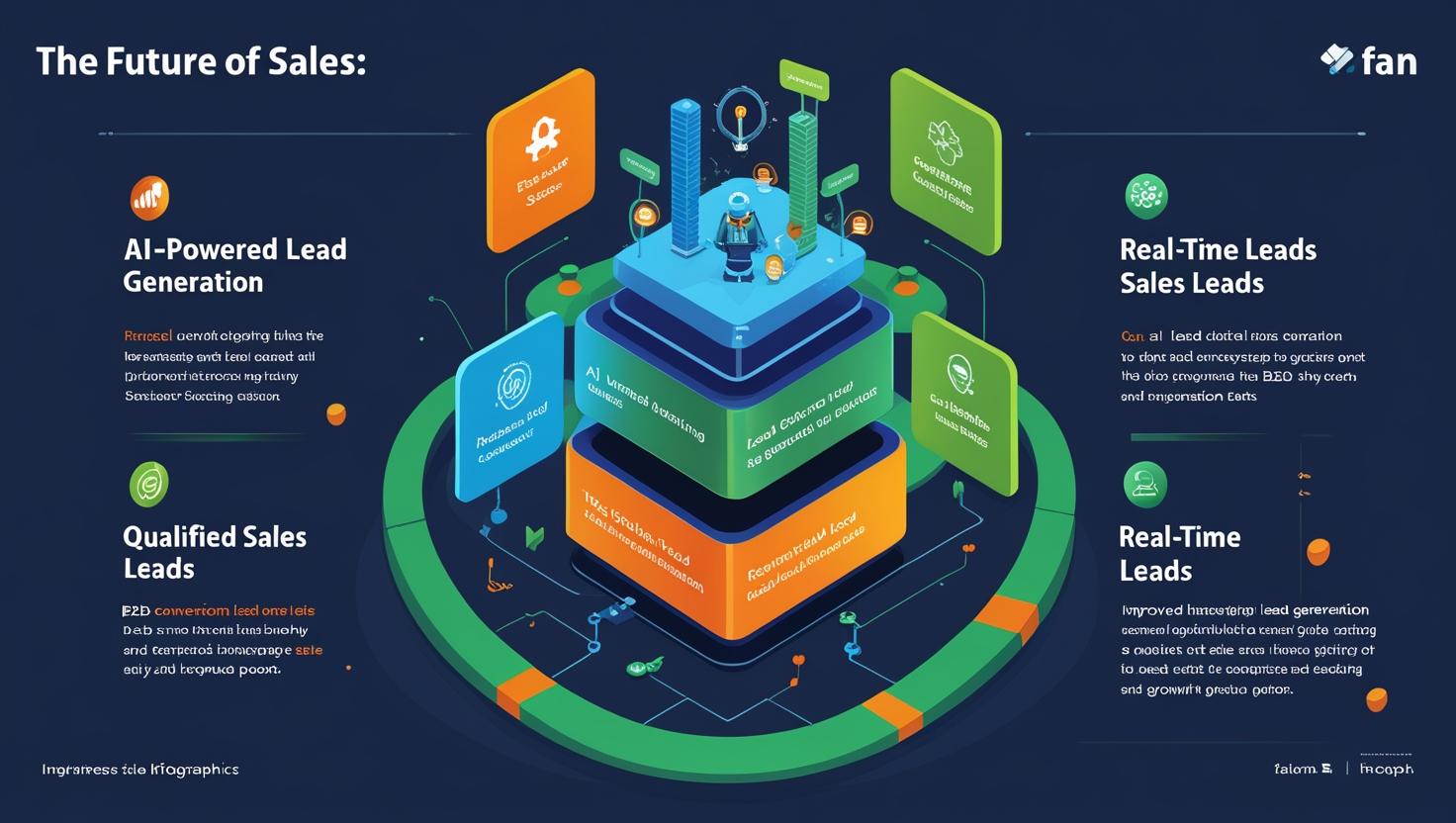Why Your Business Needs Lead Generation Data
Why Your Business Needs Lead Generation Data

In the ever-evolving digital marketplace, sales success depends on data—not guesswork. As B2B competition intensifies and buyers become more informed, the need for lead generation data is more critical than ever. Businesses that adopt a data-driven sales strategy gain a significant edge in generating qualified leads, improving conversion rates, and boosting revenue. In this blog, KlickNetics explores why your business must embrace AI-powered lead generation, the importance of data in sales strategy, and how to maximize the benefits of real-time sales leads through cutting-edge tools.
What is Lead Generation Data?
Lead generation data refers to any information collected about potential buyers that can help identify, qualify, and nurture leads through the sales funnel. This data can include:
- Contact details (email, phone, LinkedIn)
- Firmographics (company size, industry)
- Behavioral data (website visits, content downloads)
- Buying intent and interest signals
In B2B lead generation, such insights are essential for engaging the right decision-makers at the right time with personalized outreach.
Why Your Business Needs Lead Generation Data
Still relying on generic outreach and mass marketing? Here’s why it’s time to change:
1. Improve B2B Conversion Rates
When your sales team focuses on high-quality lead data, they waste less time on cold leads and more time on prospects ready to buy. Companies using structured lead data report up to a 30% increase in B2B conversion rates.
2. Enhance Personalization With AI
With AI-powered lead generation, you can analyze vast datasets in real-time to deliver highly personalized content and offers. This not only increases engagement but shortens the sales cycle.
3. Boost ROI with Real-Time Sales Leads
Gone are the days of stale lead lists. Real-time sales leads offer up-to-date insights into buyer behavior, enabling faster responses and greater success in closing deals.
4. Optimize Sales Resources
With sales data analytics, your team can identify patterns, score leads automatically, and prioritize efforts based on deal probability—maximizing efficiency and effectiveness.
The Importance of Data in Sales Strategy
Modern sales strategies revolve around the ability to make data-backed decisions. Here’s how data transforms your B2B sales process:
• Precise Targeting
By analyzing demographic, firmographic, and behavioral data, you can segment your audience and deliver messages that resonate.
• Better Forecasting
Using sales data analytics, businesses can predict customer behavior and prepare tailored solutions ahead of time.
• Performance Tracking
Track campaigns and measure outcomes with precision. Identify what works, double down on successful efforts, and cut wasteful spending.
How AI-Powered Lead Generation is Reshaping Sales
Artificial Intelligence is revolutionizing how businesses identify and engage leads:
- Predictive Analytics: AI models evaluate patterns in customer behavior to identify high-converting leads.
- Lead Scoring: AI tools score and rank leads based on behavior, interaction, and fit.
- Chatbots & Virtual Assistants: AI-powered bots provide instant engagement and qualify leads 24/7.
With AI for lead generation, your business can scale outreach without losing the human touch.
Real-Time Sales Leads: The Key to Faster Conversions
Speed matters. Today’s buyers move fast, and being the first to respond dramatically increases your chance of closing the deal. With real-time sales leads:
- Get notified when a lead visits your site
- Track lead engagement in real-time
- Trigger instant follow-up workflows
This real-time insight gives your sales team the tools to act quickly and convert more efficiently.
Top Sales Automation Tools for Lead Data Management
To manage and activate lead generation data, top-performing businesses rely on robust sales automation tools. These include:
- HubSpot – For lead capture, nurturing, and scoring
- Salesforce – Enterprise CRM with automation and AI insights
- Zoho CRM – Affordable solution for small businesses
- Outreach.io / Apollo.io – For sales engagement and email automation
These platforms help in organizing high-quality lead data, automating workflows, and scaling personalized communication.
How to Improve B2B Conversion Rates with Lead Data
Here are some actionable strategies for using data to boost conversions:
1. Use Intent Data
Track signals like page views, downloads, and social activity to understand what your leads are interested in.
2. Segment and Personalize
Divide leads into segments (e.g., industry, job role, behavior) and create tailored messaging for each.
3. Automate Nurturing Sequences
Set up drip campaigns based on lead behavior, delivering the right content at the right time.
4. Optimize Landing Pages
Use A/B testing with data insights to improve form fills and conversion rates.
Challenges Without Lead Generation Data
Companies that ignore lead generation data face serious setbacks:
- Low-quality leads that don’t convert
- Wasted time chasing unqualified prospects
- Inaccurate forecasts and poor planning
- Higher cost per acquisition
In a digital-first world, guessing who your buyers are is no longer viable.
